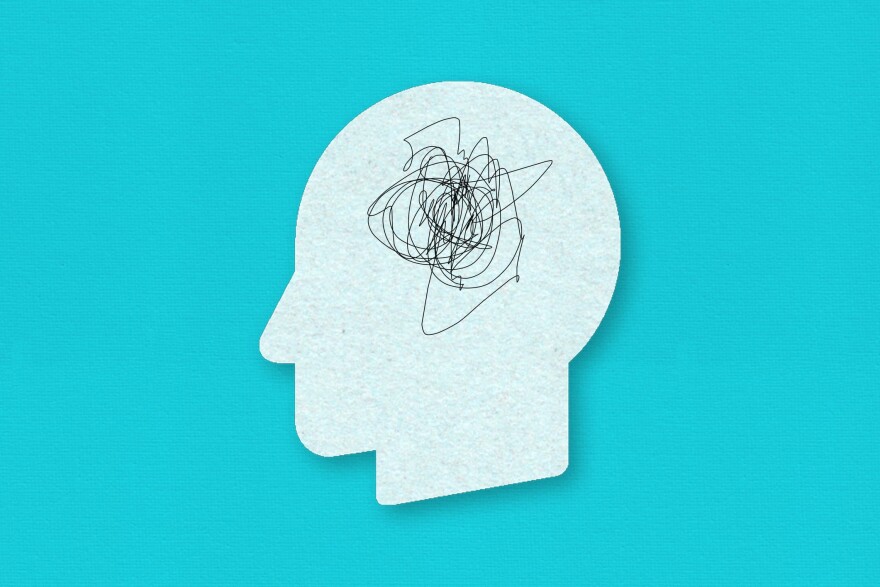At work, deadline demands are present. Your marriage is becoming more difficult. Or perhaps your child is having issues at school. Perhaps you are bothered by a health issue. Your life has been suddenly overtaken by anxiety. The limbic system, our brain’s fear centre, is activated by anxious thoughts. A simple notion in a split second quickly triggers this portion of the brain. The good news is there are Ways to Stop Anxious Thoughts.
Anxiety is a reaction to both physical & emotional stress. Anxiety can strike people with anxiety disorders for no apparent cause. Along with racing thoughts, perspiration, stomach ache, and a racing heart, anxiety can lead to extreme stress.
There are, however, techniques to control it. Health care is accessible if lifestyle changes are unsuccessful. Lifestyle changes can frequently be helpful.
Stop Anxious Thoughts Following These Simple Steps

1. Exercise Daily
Two ways that exercise can reduce anxiety. The first effect is a reduction in the body’s levels of stress chemicals. The second benefit is that it forces people to concentrate on exercising, which might divert their attention from negative thoughts.
Researchers discovered in 2022 that compared to participants who did not exercise, those who completed a 12-week fitness program saw a decrease in depressive & anxiety symptoms.
The exercise group performed resistance & aerobic exercises. More so than those who engaged in lower-intensity exercise, individuals who engaged in higher-intensity exercise reported improvements in their anxiety levels.
Anyone interested in beginning a program of physical activity to reduce anxiety should first consult with a doctor, & they should engage with a certified trainer to ensure they exercise safely.
2. Practice Yoga
Yoga is one of the excellent Ways to Stop Anxious Thoughts. For people with anxiety, yoga may be very helpful. In a 2015 review, the impact of yoga on the nervous system & mood function was examined.
Yoga lowered heart rate, blood pressure, and cortisol levels across the 25 research, according to the review. A hormone called cortisol has a role in the fight-or-flight reaction to terror. Anxiety might worsen when there is an excess of cortisol in the blood.
Anxiety & depressive symptoms are reduced as a result of yoga. Additionally, it lowers blood levels of chemicals referred to as cytokines.
In reaction to stress, the immune system produces cytokines. Long-lasting inflammation & other harmful health consequences can result from persistently elevated cytokine levels.
3. Try Mindfulness-Meditation
Meditation is an excellent answer to How to Stop Anxious Thoughts. Meditation brings many benefits & stopping anxious thoughts is one of them. According to a study, anxiety might lessen if you can put some distance between yourself & what you’re feeling.
However, if you let that low rumble of tension get too ingrained in your life, it may increase over time & become a stress “habit” that is bad for your health & well-being.
As a result, we add extra stress to our lives when we fall into reactive habits. Because of this, it’s crucial to distinguish clearly between behaving mindfully & responding inadvertently.
4. Practice Visualization Techniques
A different kind of meditation is called guided imagery (GI). To induce a feeling of relaxation, GI includes mentally conjuring up serene sights.
One 2015 study looked at the effects of GI & music (GIM) together on anxiety connected to the workplace. The researchers split the 20 participants in this study into two groups. A 9-week GIM program was completed by one group. The second group received no care.
The GIM group significantly outperformed the no-treatment group in terms of stress management & overall wellbeing. Additionally, the GIM group’s blood cortisol levels were shown to have decreased more dramatically. More research is required to confirm if GIM is effective for treating other types of anxiety.
5. Listen To Music
Music may cause the brain’s reward circuits to become more active, enhancing sensations of pleasure & reducing tension and anxiety. According to one review, music helps patients with anxiety symptoms. Whether the benefits outlast the exercise is obscure, though.
According to a 2016 study, a person’s taste in music has the most impact on how much stress they experience. This shows that enjoying a favorite song or musical style when under stress may be a quick-fix solution.
6. Question The Validity Of Those Thoughts
One of the Ways To Stop Anxious Thoughts is to question the validity of them. Examine the thoughts & their reason.
Note them down & consider them using your logic & rationality. Try to find out if they are really a big deal like you are thinking them to be or if you are losing your mental peace over some wild imagination.
Remember, “Worry is like a rocking-chair; it gives you something to do but takes you nowhere.” Try to find out if those reasons for your anxiety are real or not.
You may lose your sleep over some upcoming expenses while tight on funds. Try to find out if you can gather funds to meet those expenses. Thinking about the solutions rather than the problem is a much more helpful method.
7. Identify & Manage Your Triggers
Either on your own or with a therapist, you can discover triggers. They might be more evident or less obvious, depending on the situation. Common causes of anxiety include:
- Relationships, work, & other stresses.
- A drug’s withdrawal symptoms or the adverse effects of a particular treatment.
- A worsening of previous trauma.
- Persistent ache.
- Smoking & caffeine.
Finding your own triggers is crucial to controlling & coping with anxiety episodes since everyone has distinct triggers.
8. Take A Walk
Walking can be an answer to How to Stop Anxious Thoughts and help us release the tension we retain in our body & dissipate the worried energy we experience.
According to research, walking may considerably lessen anxiety symptoms in the present, divert your attention from the cause of your anxiety, and build emotional stamina over time. It helps to do a 10 to 15-minute loop around the block. Walking outside, though, can also be beneficial.
Participants in a 2018 study published in the International Journal of Environmental Research & Public Health indicated that a walk through the forest enhanced good moods & decreased stress, anger, and hostility.
It also reduced depression. Your mental health will appreciate it if you get the chance to go outside & “touch the grass.”
Anxiety Attacks
An anxiety attack can occur when anxiety is strong enough. An episode may begin to seem tolerable & then progressively worsen over a few hours. You should follow some Ways to Stop Anxious Thoughts to avoid them. Attacks of anxiety can lead to:
- Sensations of impending danger, worry, dread, extreme anxiety, or restlessness.
- Quick heartbeat, trembling weakness.
- Trouble concentrating.
Panic attacks & anxiety attacks have similar symptoms but are two different conditions.
FAQs
Q: What is the difference between a panic attack & anxiety attack?
A: A quick spike in severe dread or discomfort and accompanying physical and mental symptoms is known as a panic attack. Attacks of panic are episodic & often peak in a matter of minutes or hours. On the other side, anxiety is a natural defensive & emotional reaction that is encoded in the human body.
Q: Sometimes, I suffer from anxious thoughts while having drinks. Why does it happen?
A: Alcohol can reduce your capability to think logically & trigger anxious thoughts more than ever.
Q: Can sharing anxious thoughts with my partner help?
A: Communicating those thoughts & having a new perspective can help to bring down those anxious thoughts.











